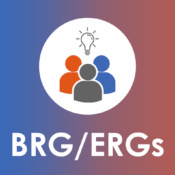
Not All Interpreters Are Created Equal
As a fourth-generation Deaf individual, I’ve experienced firsthand how much an interpreter can shape an interaction. Whether navigating a medical appointment, legal proceedings, a job interview, and everything in between - the interpreter’s skills and approach will either facilitate connection or create unnecessary barriers.
Some interpreters are conversation wizards, enabling free-flowing conversations and inspiring new ideas. Others, despite good intentions, alter nuanced meanings, assume control of the interaction, or simply fail to adapt to the needs of the situation.
I have been fortunate to work with interpreters where it just “clicks.”
The common denominator of these trusted partnerships is that I have utmost confidence that the interpretation will be conveyed accurately and with precision due to the interpreter’s nuanced skills and industry-specific knowledge.
Great interpreting doesn’t end there. A successful experience requires a trusted partnership and mutual interdependence amongst all participants - not only the interpreter and the Deaf or hard of hearing client.
Yet, too often, those who secure interpreting services and/or interact with interpreters perceive the interpreter solely as a linguistic conduit. All the while, these key stakeholders neglect the dynamic and interactive nature of the interpretation process, including the important attributes that exceptional interpreters share.
What are these attributes, you ask?
Certification is the Bare Minimum
Interpreting certification is a fundamental requirement - not an advanced qualification. Certification signifies that an interpreter has met specific standards and demonstrated language competency. However, certification alone doesn't guarantee a positive experience. Real-world experience navigating diverse communication scenarios, adapting to handle varied subject-matter and speaker styles, and the nuanced cultural understanding required to convey true meaning are vital when distinguishing the exceptional interpreters from the rest.
Skills and Language Proficiency Varies
It's essential to distinguish between a sign language interpreter's interpreting skills and their language proficiency in American Sign Language (ASL) and English. While a skilled interpreter can fluently convey meaning between languages, the success in doing so is inherently limited by their understanding of the source and target languages. I’ve noticed that in most communication breakdowns, the issue isn't necessarily a failure in the interpreting process itself, but rather a limitation in the interpreter's understanding or expressive capacity in either language. Ultimately, the lack of comprehensive language proficiency can lead to disconnect between Deaf and hearing individuals. Strong ASL and English skills are the bedrock upon which effective interpreting is built.
Subject Matter Expertise Matters
Linguistic proficiency alone isn’t enough to get by.
Subject matter expertise is not limited to specialized fields like medicine or law. They run the gamut, extending to meetings in the workplace and public settings like press conferences. To this end, just as a legal interpreter needs to grasp legal terminology, an interpreter that is interpreting a meeting with a Deaf structural engineer about zoning regulations needs to understand urban planning concepts. Effective interpreting in a variety of settings, including medical, legal, and corporate settings, requires an industry-specific knowledge base to ensure a positive experience for all.
In fact, this is exactly why 2axend hosts a variety of virtual conferences for interpreters, including the Deaf in Healthcare Summit for Interpreters and Interpreting for Deaf Professionals Summit. We are also launching two additional Summits in 2025, focused on providing critical context for interpreters in mental health and legal environments.
Honoring the Message
Every now and then, I encounter a situation where an interpreter decides to “edit” the context. For instance, I was recently on a Zoom call with a Dean of a prominent school of medicine to discuss opportunities for collaboration. During the call, the Dean referred to Deaf and hard of hearing individuals as being “hearing impaired.” Instead of relaying that phrase word for word, the interpreter changed it to “deaf and hard of hearing.” You might think the interpreter was trying to ensure the interpretation was culturally sensitive. However, in doing so, they almost inadvertently took away my opportunity to educate the Dean on appropriate and sensitive vernacular. Fortunately, because I had captions running during the Zoom meeting and caught the discrepancy, I was positioned to educate the Dean and reinforce this key example of why the school should work with 2axend to enhance their programs.
If you are hearing and schedule and/or work with interpreters - please recognize their variability. Always defer to the Deaf or hard of hearing individual, especially as they can attest to interpreters (and the interpreting referral agencies who contract or employ them) that prioritize accuracy, neutrality, and adaptability.
If you are Deaf or hard of hearing, I encourage you to advocate for your needs. Expect not just certification, but genuine skill, professionalism, and respect for your autonomy.
And if you’re an interpreter, do not accept interpreting assignments that you are not qualified for. But that’s not all. Rather than aiming for simple accuracy during interpreting encounters, focus on developing the nuanced expertise that creates an experience that is not just good, but genuinely transformative for the clients you serve.
Ultimately, the difference between good and game-changing interpreters transcends mere words; the latter leaves clients feeling they are truly heard and understood.
(Originally Posted on LinkedIn)



